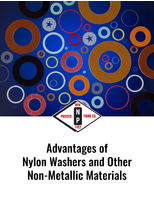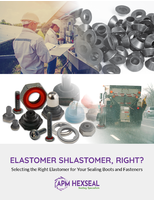Associations sign letter urging pilot program for 10+2 rule.
Press Release Summary:
Proposed by U.S. Customs and Border Protection, 10+2 rule requires 10 new categories of data on U.S. bound shipments 24 hours before loading in foreign ports. Prototype program would enable customs to get it right and save U.S. business and government from having to make multiple changes to operations. It would also allow government to assess security risks that will arise from implementation of rule. NAM, along with 39 other trade associations, supports prototype program.
Original Press Release:
40 Trade Associations Sign Letter Urging Pilot Program For 10+2 Rule
Prototype Program Would Enable Customs to "Get It Right"
WASHINGTON, D.C., July 17, 2008 -The National Association of Manufacturers is among 40 trade associations signing a letter to Congress to requesting a prototype program on the "10+2" rule proposed by U.S. Customs and Border Protection (CBP.)
"The rule proposed by Customs requires 10 new categories of data on U.S. bound shipments 24 hours before loading in foreign ports," said Catherine Robinson, Associate Director for High Tech Trade Policy. "That would add tremendous cost to U.S. manufacturing at a time when increasing global competition and a slowing domestic economy are creating new stresses on U.S.-based manufacturers from every sector. National security and trade facilitation need not be mutually exclusive. National security can be enhanced without impeding commerce.
"A prototype program would enable customs to get it right and save U.S. business and the government from having to make multiple changes to their operations," Robinson said. "A rigorous prototype program would also allow the government to carefully assess any security risks that will arise from implementation of the proposed rule. The National Association of Manufacturers, along with 39 other trade associations, believes a prototype program is the pragmatic way forward.
"There is significant precedent for requiring a prototype program for new CBP rules, and the majority of its major initiatives have benefited from such testing," Robinson said. "This rule should be afforded the same treatment.
"A prototype program is the best method for evaluating the impact of the proposed rule and for identifying ways to improve the rule before the government and industry invest billions of dollars to comply," said Robinson. The proposed rule, which will create significant delays in the supply chain, will cost U.S. companies over $20 billion annually-costs that will be passed down to the consumer at a time when hard-working families can least afford it.
"A prototype program conducted in real time and keyed to the actual specifications of the proposed rule will improve CBP's ability to tailor the rule to be the least burdensome on businesses of different sizes while enhancing the security of the U.S.," Robinson said.
The proposed rule requires 10 new categories of data to be collected on U.S.-bound sea-bound container shipments 24 hours before loading in foreign ports. The rule has not been, and is not planned to be, tested for feasibility or effectiveness. The NAM submitted formal comments to CBP requesting a prototype program in March 2008 as did many other leading companies and business groups.
The letter: http://nam.org/hidden/pdf/Association_Letter_on_102Rule.pdf
CONTACT: HANK COX (202) 637-3090




